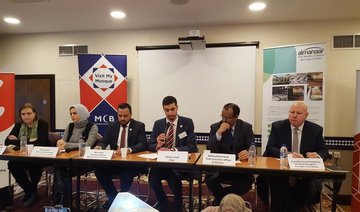LONDON: The East London Mosque opened its doors to the public on Sunday, giving people of all faiths the opportunity to explore the place of worship, learn about Islam, and ask questions.
As part of a Muslim Council of Britain initiative called “Visit My Mosque,” more than 200 across the country welcomed members of local communities over the weekend.
The initiative is in its seventh year and is back in person after a two-year hiatus due to the COVID-19 pandemic during which the event was held virtually.
At the East London Mosque, one of the largest in Europe, visitors were treated to British staples tea and cake, given tours, and were able to view a special Qur’an manuscripts exhibition.
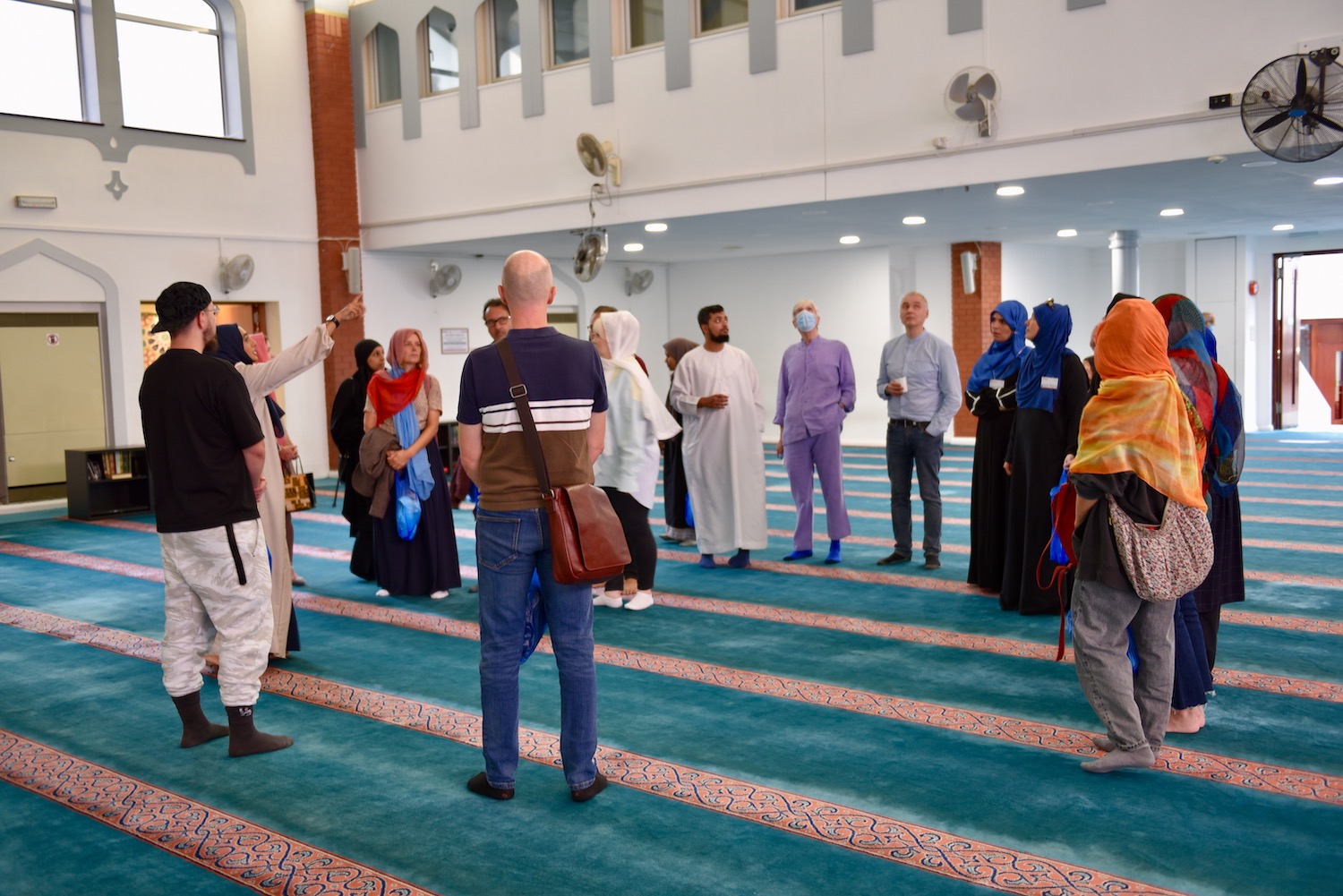
Visitors are given a tour of the East London Mosque on Sunday. (Abdulmukith Ahmed)
Attendees were able to explore a display of the mosque’s archives chronicling early Qur’an translators and listen to community leaders who shared inspiring messages of neighborliness.
They were also able to witness the midday or Dhuhr prayer being performed from a special viewing gallery, and listen to the adhan, or call to prayer, which is particularly pertinent considering the mosque was the first in the UK to broadcast it through public speakers.
A stand for women allowed them to try on headscarves in a variety of colors and patterns and people could have their names written in Arabic calligraphy at another.
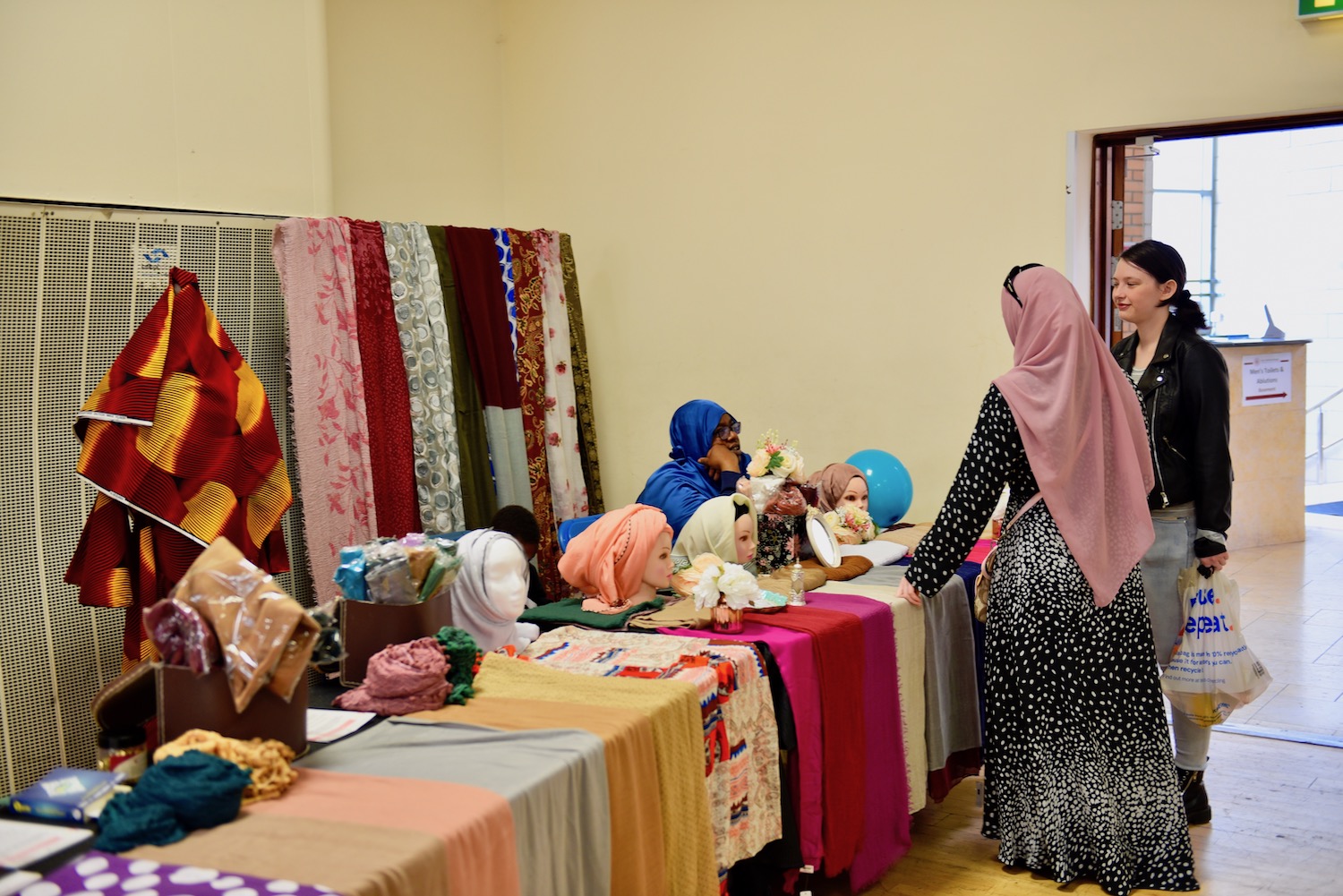
Women could take their pick of scarves at the East London Mosque on Sunday. (Abdulmukith Ahmed)
A corner dedicated to TED-style talks had participants discuss misconceptions about Islam, the Qur’an, and what it feels like to be a Muslim in Britain.
Nathan Gubbins, who works at the East London Mosque as a politics and engagement officer, delivered a talk about the Qur’an.
“We’re looking to introduce Islam in a palatable way to non-Muslims. We have a range of religious figures here today talking about Islamic topics such as the oneness of God, the Qur’an, and women in Islam. In the final session, I’ll be talking about being Muslim in Britain, my experience as well as the experiences of other converts, and how Islam can exist in the UK,” Gubbins told Arab News.
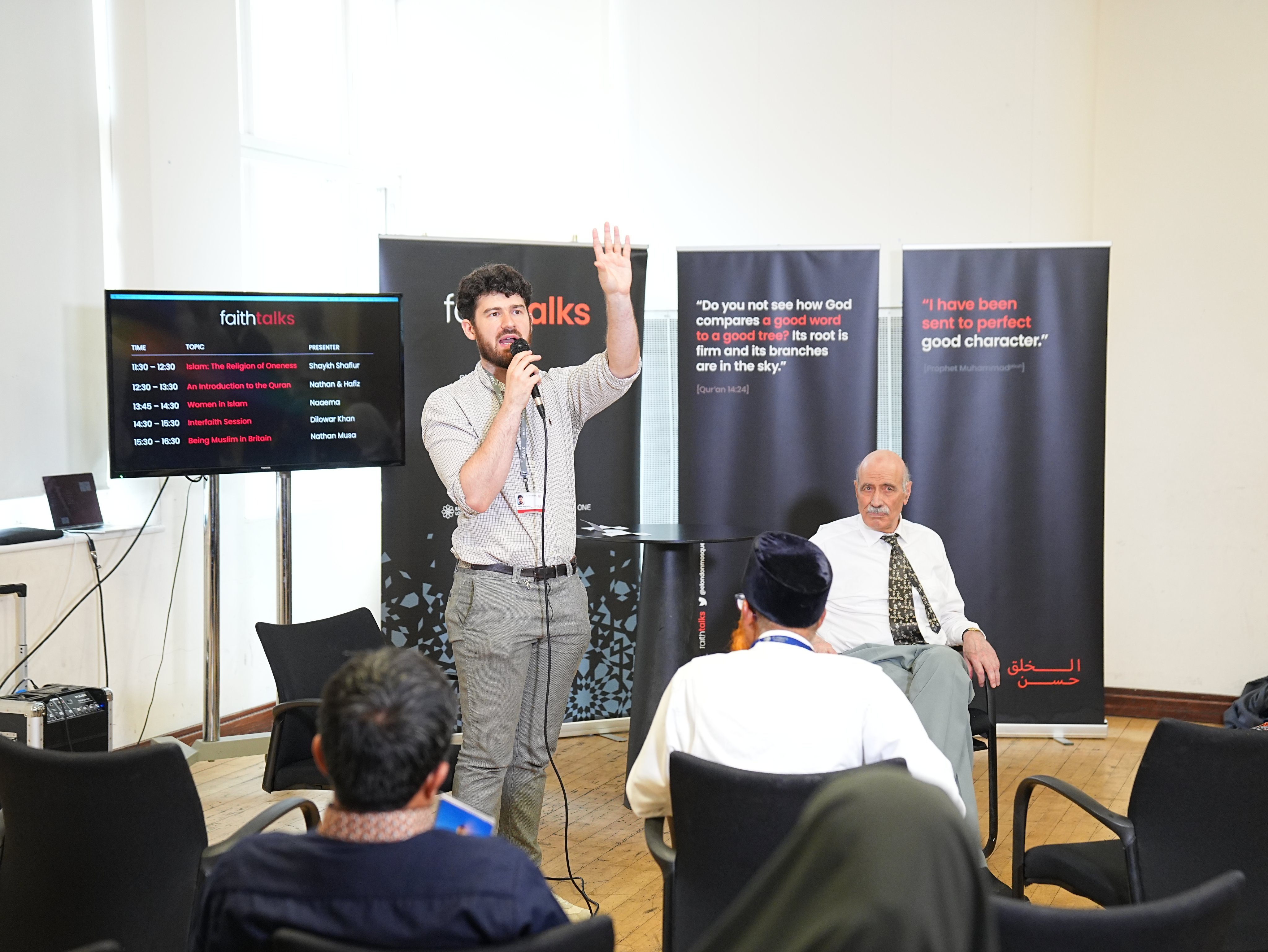
Nathan Gubbins, who works at the East London Mosque as a politics and engagement officer, delivers a talk about the Qur’an. (Abdulmukith Ahmed)Caption
Colin John, a healthcare professional who specializes in mental health, attended the event with his Muslim friends and said he has been interested in Islam “for a long time.” He was “particularly impressed with the inclusiveness of Islam.”
“I think it’s great that the East London Mosque has opened its doors, and I am glad to come because I have regard for my dear Muslim friends and they were good enough to invite me.
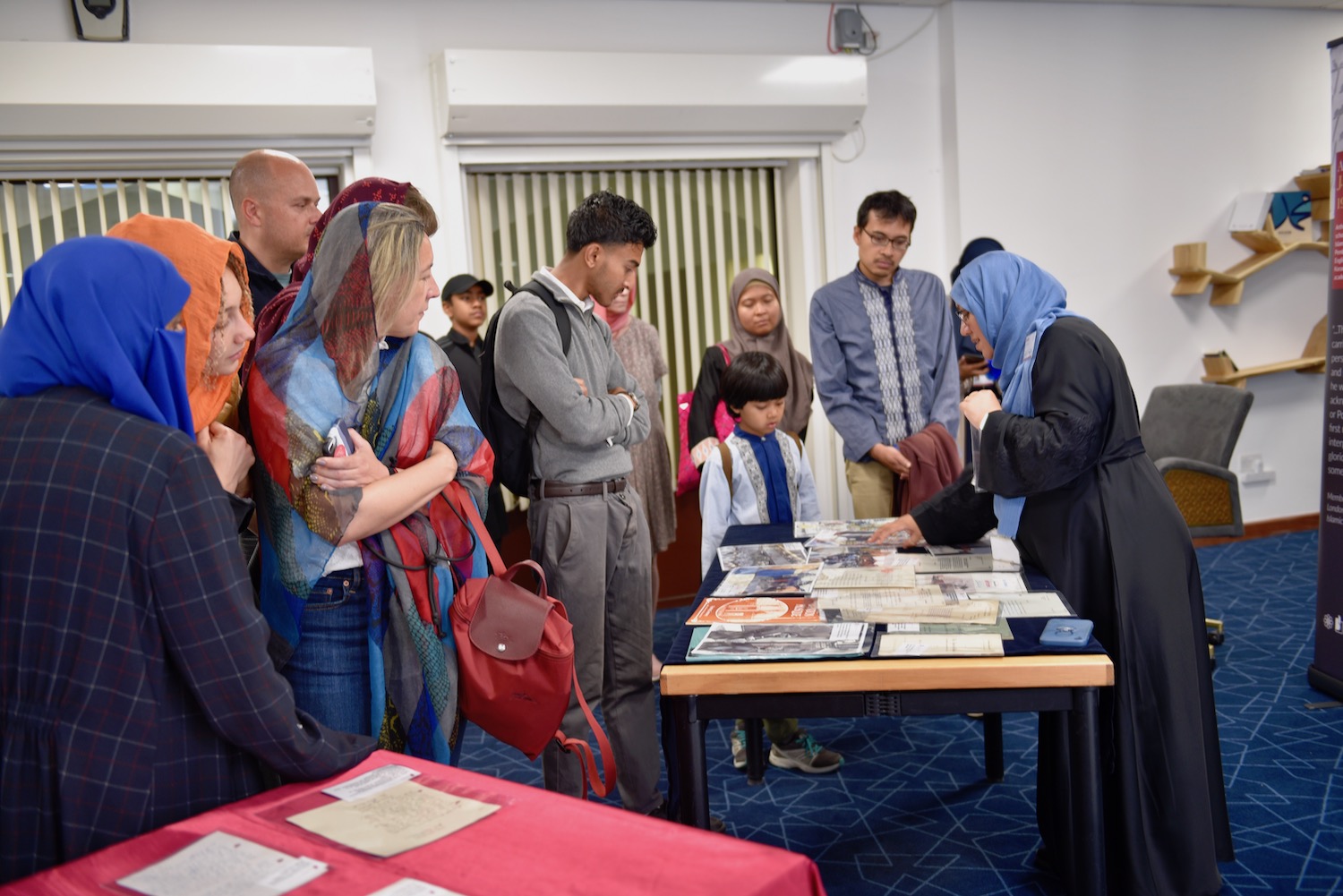
Visitors listen to an explanation of documents from the East London Mosque’s archives on Sunday. (Abdulmukith Ahmed)
“But what particularly impressed me with the introduction course was the inclusiveness of Islam, and how, from what I understand, other prophets and other belief systems are embraced.
“And in a world where there is such damaging focus on difference, it is really warming to hear inclusiveness,” John said.
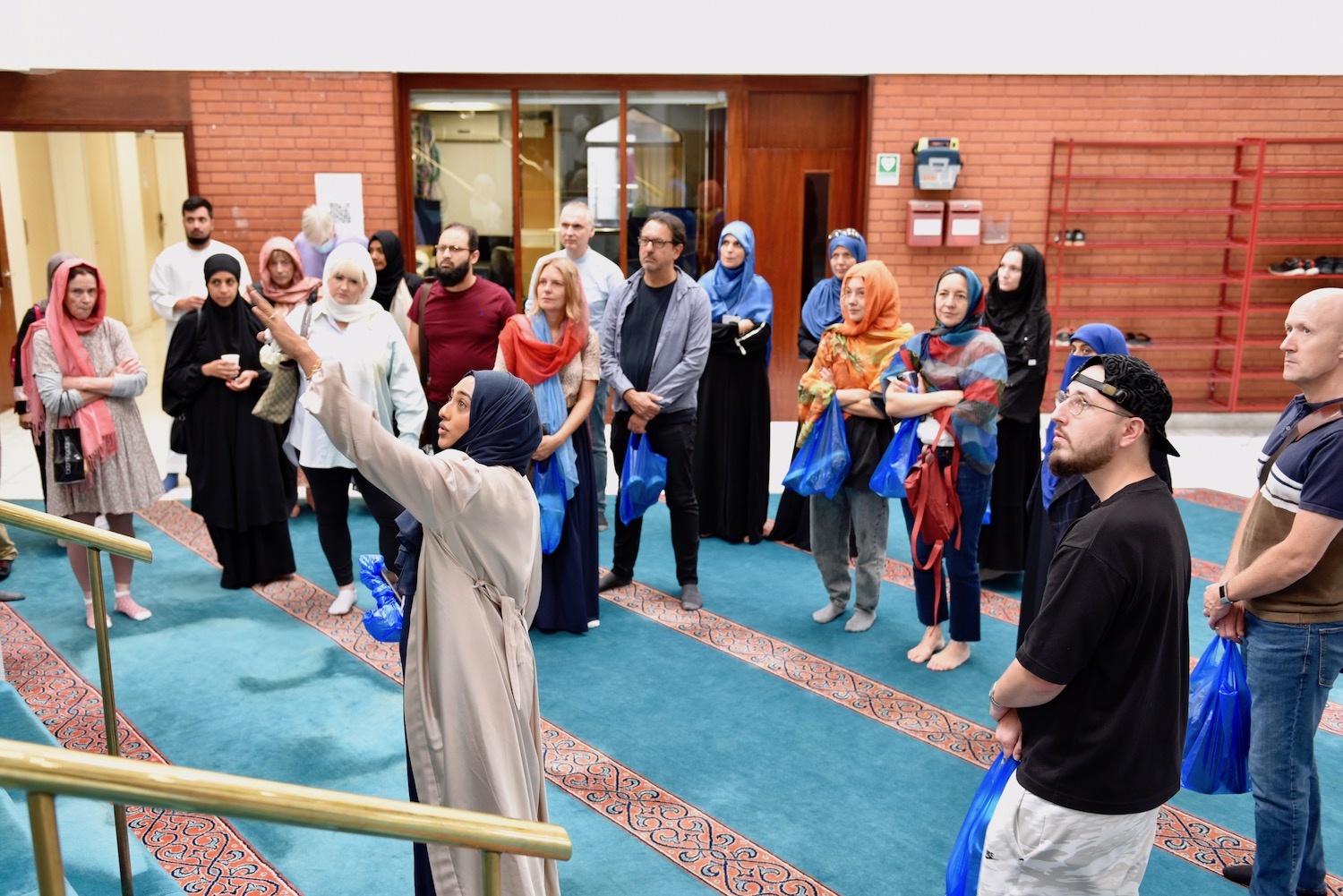
Visitors are given a tour of the East London Mosque on Sunday. (Abdulmukith Ahmed)
Another attendee, Kirsty Gentle, said she was pleased to witness the mosque’s connection to nature firsthand.
The mosque has been home to several beehives since 2011 and most of them are kept on the roof of the London Muslim Centre which is part of the place of worship.
“I guess I’m really interested in the bees,” the community engagement officer said.

The East London Mosque has been home to several beehives since 2011. (East London Mosque)
“It’s just really lovely to see the whole building. I’ve also been to the Shah Jahan Mosque in Woking, and its super important to take this opportunity and learn about different cultures and religions,” Gentle said.
Prof. Muhammad A. S. Abdel Haleem, recipient of the Order of the British Empire, delivered a short talk on the Qur’an which he has translated into English. The renowned scholar’s translation is read by people across the globe.
He praised the mosque for Sunday’s event and said he was “delighted” to see non-Muslims being welcomed.
“We should try to encourage non-Muslims to visit the mosque which is so spacious and pleasant,” Abdel Haleem said.
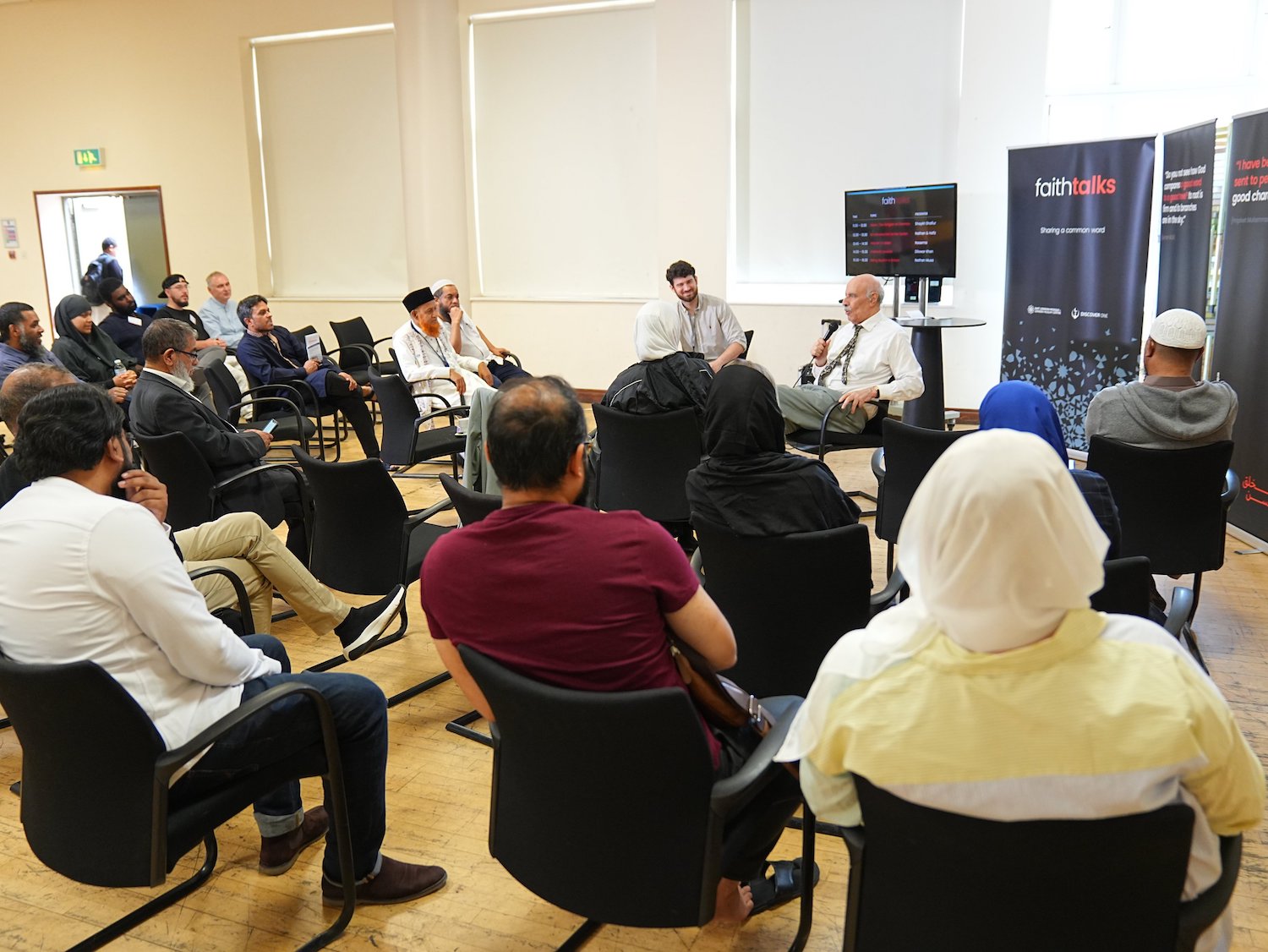
Prof. Muhammad A. S. Abdel Haleem delivers a short talk on the Qur’an at the East London Mosque on Sunday. (Abdulmukith Ahmed)
Dilowar Khan, director of engagement for the East London Mosque, told Arab News the event was a “wonderful opportunity for people to get a better understanding of Muslims and the Islamic faith.”
“Often the representation of Muslims in the media has been inaccurate and misleading. We hope that opening our doors will also open hearts and minds,” Khan said.
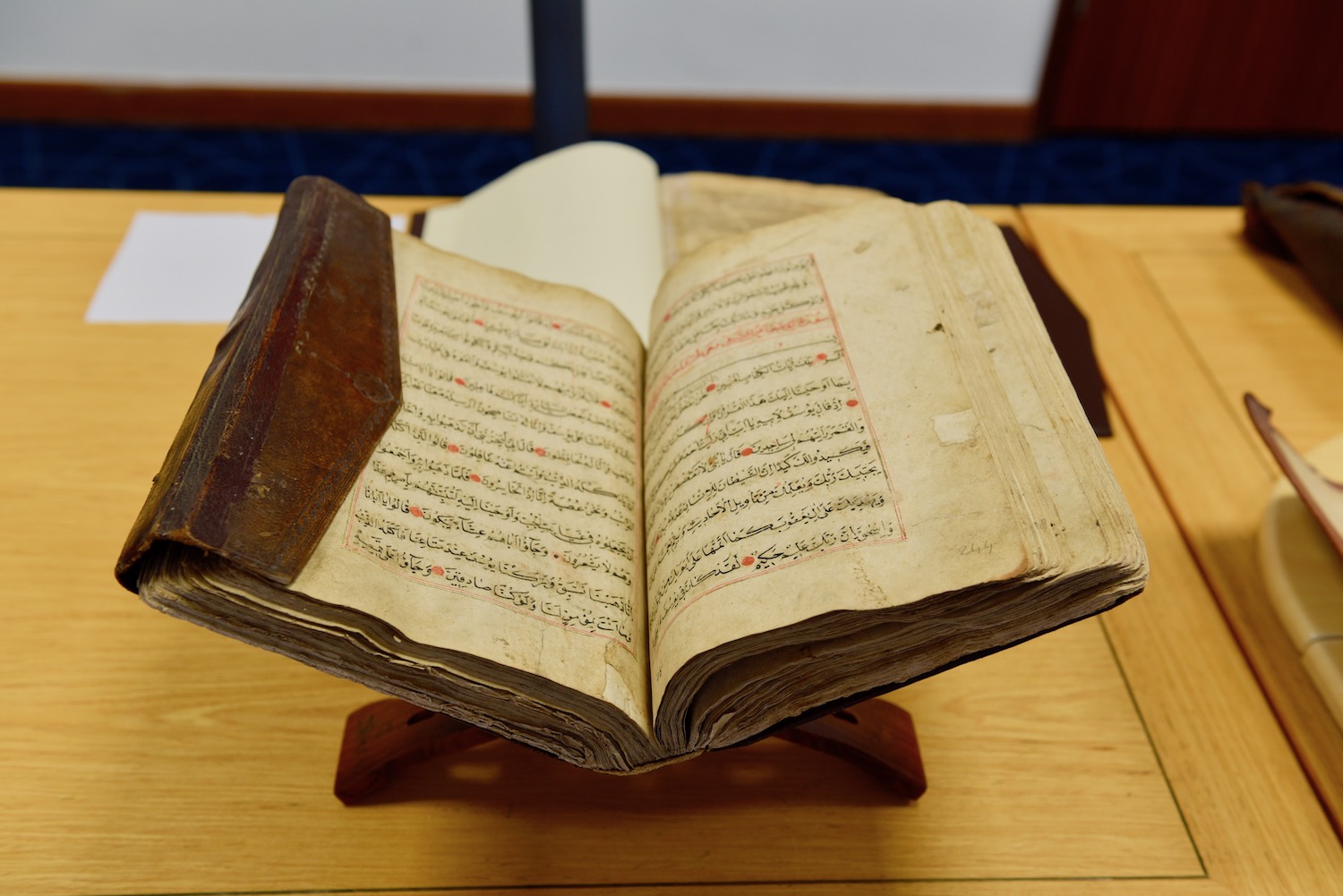
A rare copy of the Qur’an is displayed at the East London Mosque. (Abdulmukith Ahmed)
“Mosques and Islamic centers across the country play an important role in a healthy, cohesive society. For example, we continue to host a COVID-19 vaccination clinic, which is open to all, and we also run a food bank to help the most needy in our communities, especially in these challenging times.
“For ‘Visit My Mosque’ day, our staff and volunteers look forward to showing visitors what it’s like inside our mosque, and answering their questions,” he said.

The MCB’s Secretary General Zara Mohammed poses with scouts who were serving visitors fresh lemonade at the East London Mosque. (Abdulmukith Ahmed)
The Muslim Council of Britain’s Secretary General Zara Mohammed told Arab News that the “Visit My Mosque” events held around the country “will allow for guests to connect with local Muslim communities, and gain a deeper sense of who Muslims are, what their sacred spaces mean to them, and the contributions of Muslim communities to British society.”
“Now in its seventh year, ‘Visit My Mosque’ continues to see mosques open their doors to local communities, in what has become the largest mosque open-day event in the UK.
“In doing so, participating mosques provide a space for positive conversation, understanding and friendship to develop, whilst also helping challenge misconceptions around Islam and Muslims,” Mohammed said.




